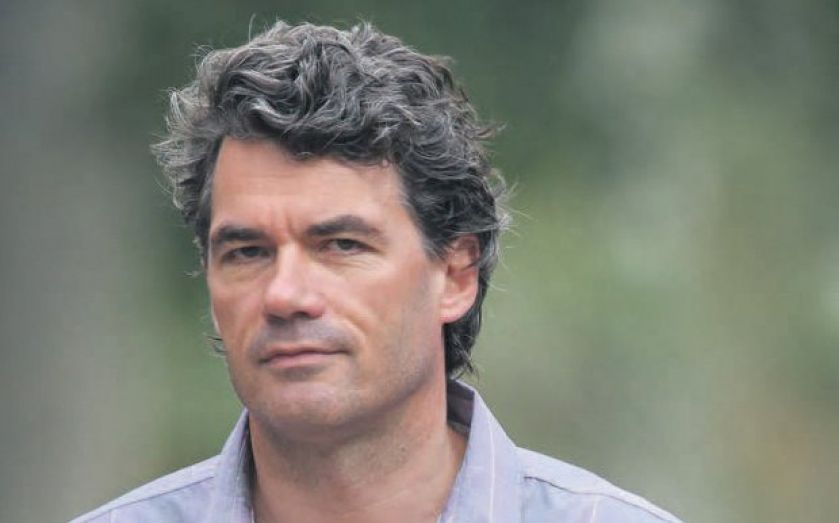Fantasy football: Can BT’s dreams of boosting growth come true?

The telecom’s move into TV sports gained credibility from its £900m deal to broadcast the Champions League, but it is not without problems
BT BOSS Gavin Patterson didn’t waste any time in making his presence felt at the top of the FTSE 100 company when he was appointed chief executive in 2013. Just two months into his tenure, BT Sport announced an £897m three-year deal to broadcast live Champions League and Europa League football matches; an arrangement that will kick off this autumn.
Delivering the company’s annual results in a glassfronted boardroom at its central London headquarters yesterday, Patterson was relaxed and cheerful, and with good reason.
Despite a slight dip in revenue, the numbers were well received by the City. The firm beat concensus figures, and Bank of America Merrill Lynch noted that investments such as the Champions League deal “will propel BT into the full quad play of products”.
Snatching the rights to the matches from Sky and ITV, which previously shared UK broadcasting of Champions League, BT came in for flak over the price of the deal, which was more than double the amount Sky and ITV had forked out in 2011.
And there are those who still have reservations about the firm’s foray into direct competition with Sky.
“BT’s made some large plays but there’s no certainty they will eat into Sky’s bread and butter,” said Paolo Pescatore, director of multiplay and media at CCS Insight.
Although BT Sport’s viewing figures went up last year – the average daily audience increased by 15 per cent compared to 2013 – Pescatore described the overall sign-up numbers, which are not disclosed, as “disappointing”.
“It reflects the inferior rights they have compared to Sky, which has the better Premier League rights,” he said.
BT and Sky went head-to-head for the rights to show Premiership matches and in February Sky was declared the winner, picking up five out of seven available packages, including many of the more sought-after matches.
This makes it more difficult for BT to win viewers away from its rival, as Pescatore pointed out: “It’s quite clear that the majority of Sky customers value Premier League football.” Therefore, he added, if BT Sport wants to be seen as a more formidable competitor to Sky, it needs to add better Premier League rights to its arsenal.
But the acquisition of Champions League rights might do the trick. Pescatore acknowledged that the Champions League win was a massive boost for BT: “Without a shadow of a doubt it does strengthen the overall rights position.”
Crucially, adding to the sports offering will boost the company’s broadband proposition. Before it moved into the TV sports sector, the former state-run telecoms group was losing customers to rivals such as Sky and Virgin Media.
However, with the BT Sport channel added in free for broadband customers, the group added 266,000 retail fibre broadband customers in 2014.
Yesterday, ardent Liverpool fan Patterson credited BT Sport with boosting top and bottom line growth at the company, and analysts at Jefferies pointed to the addition of the Champions League rights as a major driver for improvement at the group.
Pre-tax profit was up by 14 per cent in the year to 31 March, reaching £2.65bn, and while overall revenue fell by two per cent, BT Consumer, which includes broadband, TV and BT Sport customers, saw a seven per cent increase in sales.
Patterson is positive on future growth prospects for BT. Asked when revenues were expected to turn around, he admitted to sounding glib when he replied: “Within the next 12 months.”
He was similarly calm about the various regulatory issues the company is facing, including objections to the method behind Ofcom’s “margin squeeze test” and calls by competitors to break the group up and make Openreach a standalone company.
And while he would not be drawn on yesterday’s General Election, a sharply-dressed and seemingly hard to fluster Patterson became animated yesterday on the question of Europe. “On Europe, BT will be more vocal,” he admitted. “We will be campaigning on the basis that the EU, for all its idiosyncracies, is a good thing for business.”
Whether or not Patterson becomes a poster-boy for the pro-Europe movement, BT is sure to remain in the spotlight over the next few months, with marketing of the Champions League set to create a big noise. With pricing arrangements for the matches due out soon, the coverage itself starting in a few months, and the proposed acquisition of EE in the final stages of regulatory scrutiny, BT had better be match-ready.